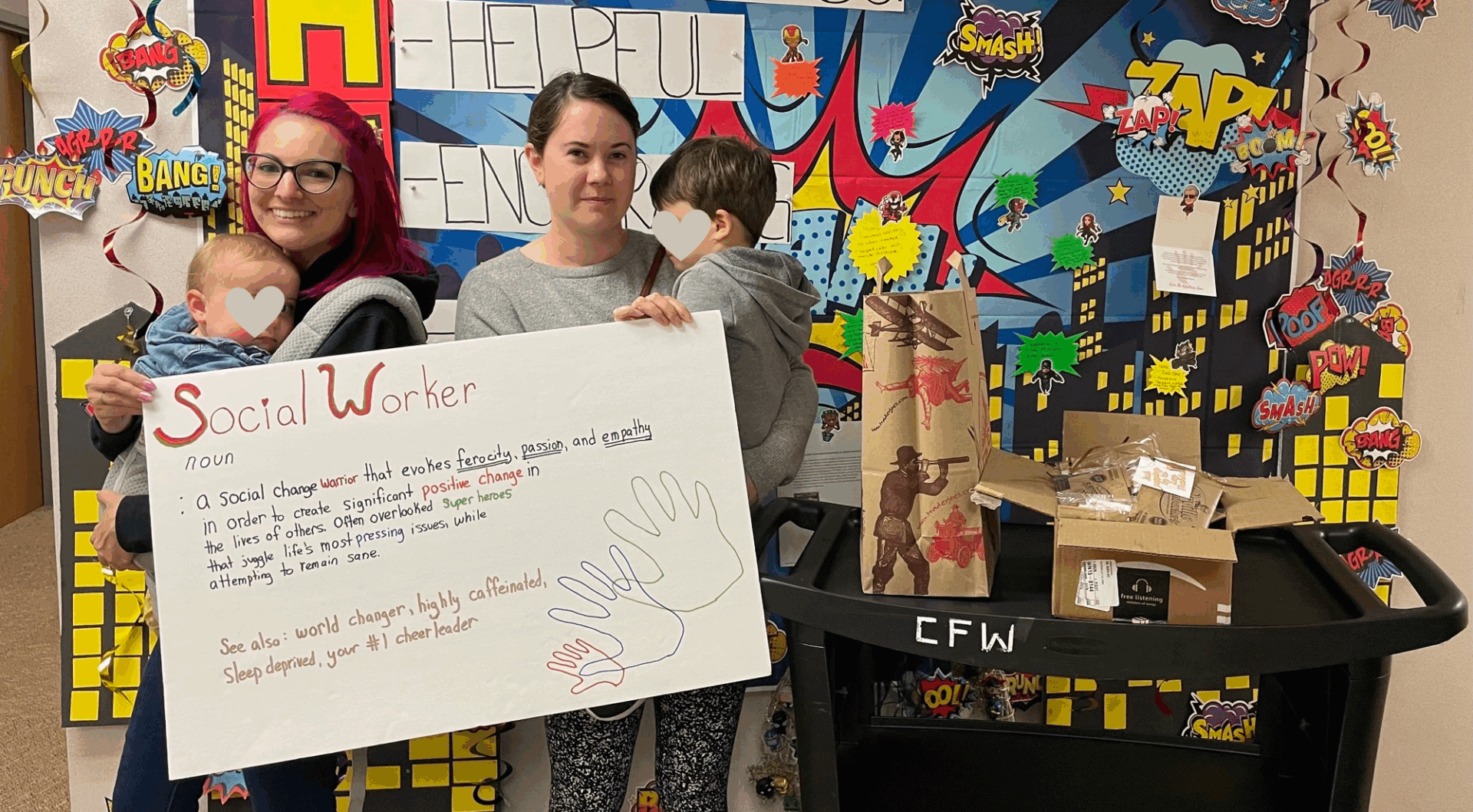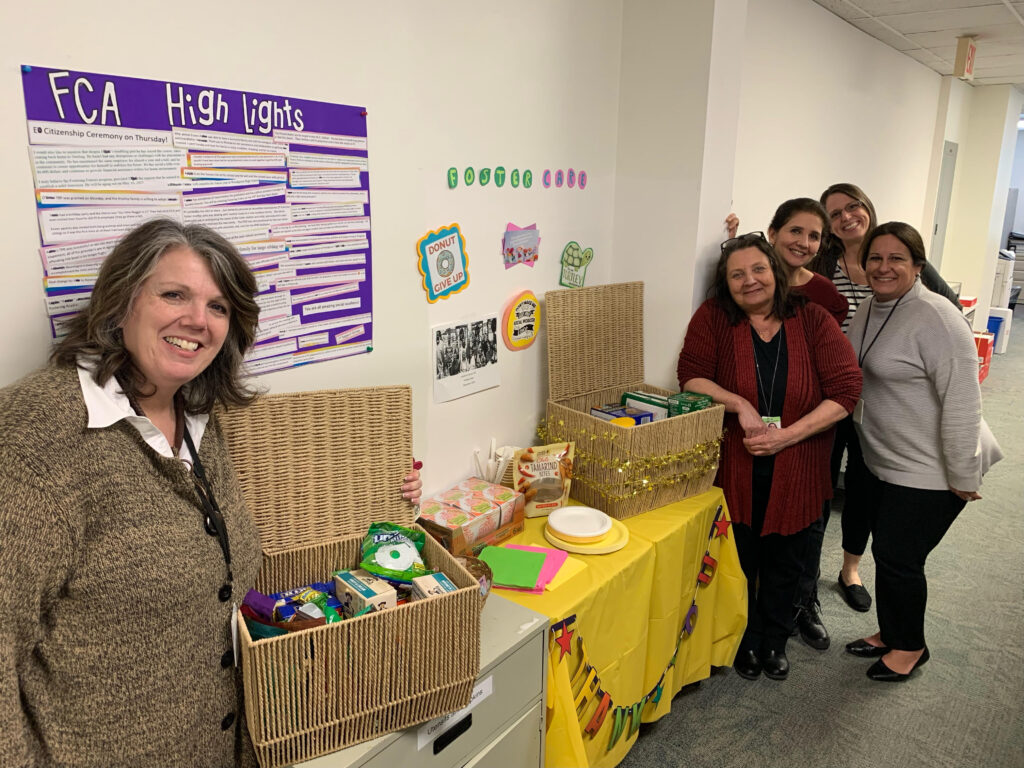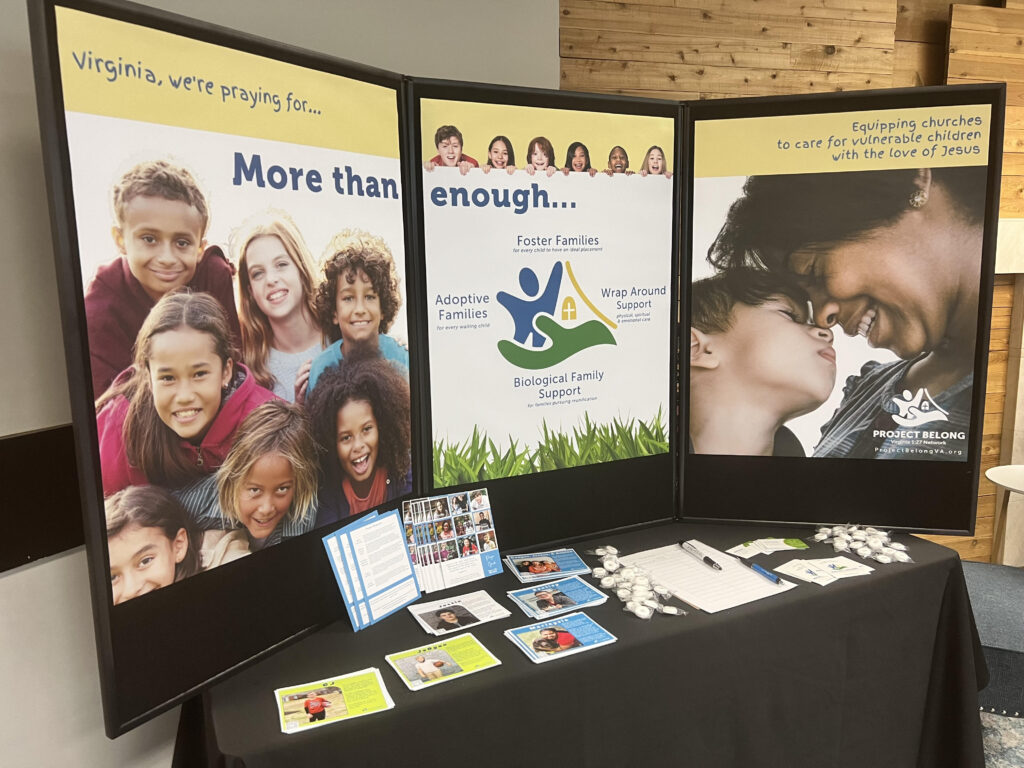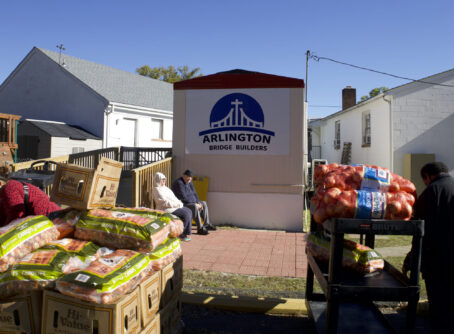
This article is part of Better Together — a storytelling series from the Center for Public Justice highlighting how faith-based organizations have partnered with government to see their communities flourish.
It started as a typical night out for dinner. But Chris and Scott Seaton had made plans not only for a meal but also to attend a book launch event in Washington, D.C. The book being released was Unleashing Opportunity: Why Escaping Poverty Requires a Shared Vision of Justice by Michael Gerson, Stephanie Summers, and Katie Thompson. It explores how Christians might understand and respond to some of the most pressing issues of our time, including early childhood care, juvenile justice, the graduation gap, predatory lending, and foster care.
As panelists at the book launch shared about these different areas, something began to stir deep inside Chris when it came to foster care. It wasn’t just a sense of the magnitude of the problem, but also that she had a personal role to play in addressing it.
Yet the idea and intuition she felt that night didn’t immediately result in action. A year went by. But then something shifted, and the Seatons found themselves becoming foster parents and caring for a sibling set. What was supposed to be a short-term placement turned into a long-term commitment.
Being foster parents is difficult, and this was no different for the Seatons. What was unique about the Seaton’s situation was that Scott Seaton was the lead pastor of a local church, which came with greater visibility than a typical foster parent. The church was proud of the Seatons’ commitment but didn’t really know how to support them. The Seatons also didn’t really know how to ask for help. Eventually, their first placement ended up being adopted by another family, and the Seatons found themselves reflecting on their experience.
There are moments in everyone’s life when they can’t seem to shake a particular question. As Chris Seaton thought about her experience of fostering with some close friends, she asked: How can the church do this better? This question led Chris on a journey of discovery, both in the D.C. area and across the United States, looking for models of how the church was being equipped to not only welcome in foster children but also to provide wrap-around support.
Through this process, three initial churches decided to partner with Chris to turn her unshakeable question into a faith-based organization with a vision for equipping the church to faithfully take up their role in addressing the foster care crisis and supporting all of the different members involved in the process. As a result, Project Belong was born. Recently, the Center for Public Justice sat down with Executive Director Chris Seaton for our series Better Together.
Project Belong’s mission is to “inspire, recruit, and resource the local church to care for vulnerable children with the love of Christ.” Sitting with Chris, you can tangibly feel that the work of Project Belong is motivated from a place of deep conviction and compassion as she embodies the call of Jesus to care for the least of these. But sometimes the church forgets their calling. “The church sometimes needs help remembering the mission,” says Chris. The work of Project Belong involves three key areas: supporting families, social workers, and aged-out youth.

In many ways, Project Belong is a “bridge” organization between the local church and the local governmental departments of family services in Virginia and Maryland. Sadly, both groups carry assumptions and potentially even suspicions about the other. There is a fair amount of skepticism that often defines the relationship. Project Belong seeks to change that. This is why every county that Project Belong works in possesses its own director whose primary task is to not only build relationships with churches but also the county’s child welfare agency—to be the bridge between the two.
“We are deeply grateful for the incredible partnership with Project Belong, whose unwavering support has been a pillar of strength for our workforce. From running support groups to sponsoring events and hosting thoughtful lunches, their care and commitment have enriched our team in ways that words cannot fully capture. Their commitment reflects the true power of community, compassion, and collaboration, inspiring us to achieve more together.”
Oriane Eriksen, LCSW, CSAC, Division Director, Children, Youth and Families, Fairfax County Department of Family Services
When Project Belong was getting started, one of the primary ways they partnered with government was through hosting ‘foster parent night out’ events. Project Belong would establish a relationship with the county child welfare agencies and pitch to them this opportunity. A local church would host the event, background check all volunteers, send each foster care parent with a gift card for dinner, and provide free babysitting for the night. Then the COVID-19 pandemic happened, and Project Belong was forced to reimagine its strategy and partnership. A shift took place from managing events to cultivating relationships, and, through the help of partnering organizations like Promise 686, Chris and her team shared more resources and tangible tools to create wrap-around support for foster families and social workers called Care Communities. These groups are a band of volunteers that serve foster families by bringing weekly meals, supplying practical needs, transporting foster children, helping with homework, and providing respite care for foster families.
But the support doesn’t end with families, it includes social care workers as well. Project Belong recognizes that social care workers are on the frontlines of caring for vulnerable children. Yet their caseloads are tremendous, turnover rates are high, and they are often underappreciated for their crucial role. This is why Project Belong matches volunteers and churches with particular social workers to encourage and support them in their work. In fact, one local pastor and their church provides lunch and notes of encouragement for the entire governmental agency staff each year.
“The Arlington County Child Welfare Bureau is grateful for our ongoing partnership with Project Belong, which plays a vital role in helping us address gaps in resources and support. Through their extensive community network, Project Belong can mobilize assistance quickly and effectively. For instance, when a client needed an eye exam and glasses, a generous community member stepped forward to cover the cost. Project Belong also facilitated a connection with another community member who helped furnish the home of a mother preparing to reunify with her children. These acts of kindness and collaboration exemplify the meaningful impact of our partnership.
Partnerships with faith-based communities fill important system gaps and enhance the responsiveness and flexibility to meet clients’ unique needs. They make more possible through their compassionate and value-driven volunteer networks, unique funding opportunities, and longstanding relationships with Arlington County community members. The Arlington County Child Welfare Bureau looks forward to building more meaningful relationships like the one we have with Project Belong.”
Lissa Friedman, LCSW-C, CPM, Bureau Director, Child Welfare Services
Arlington County Department of Human Services

Recently, the newest initiative of Project Belong called “Don’t Go Alone” is seeking to support aged-out youth from the foster care system. With this new program, Project Belong connects youth aging out of the foster care system with a mentoring adult or family. Aged-out foster youth are often some of the most vulnerable residents to forms of exploitation and homelessness. But it’s not just Project Belong seeking to help remedy this problem. The U.S. Department of Housing and Urban Development, with their Foster Youth to Independence (FYI) program, also seeks to be part of the solution by providing housing assistance specifically to former foster youth ages 18-24. One of the key requirements for this voucher program is for the recipient to have a “supportive adult” relationship as they recognize how essential these relationships will be for individuals to thrive in the future.
The next time you step out the front door expecting a typical day, remember everything about your life could change just like it did for Chris Seaton. It might not be addressing the crisis of foster care and mobilizing others to care for vulnerable children. But what could be stirring in your heart to meet the needs of the day? As Frederick Buechner wrote, “ The place God calls you to is the place where your deep gladness and the world’s deep hunger meet.” (Wishful Thinking, Buechner)
Charlie Meo is the Director of Faith-Based Leaders Alliance at the Center for Public Justice.


